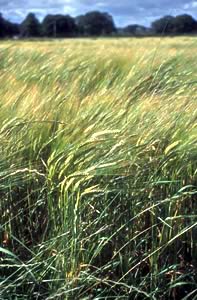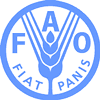 |
|||||||||
|
|||||||||||||||||||
|
|
Eastern European Cereal Output on the Rise 11/09/08 Agricultural output is expected to increase significantly in the Russian Federation and Ukraine this year, as higher food prices have led to an expansion in area planted in cereals, FAO said at a meeting here today.
Yields are also up in the two countries, and the UN agency predicts bumper cereal crops in 2008. Upside of high food prices “This clearly shows that higher prices can be an opportunity for the farming community,” said Charles Riemenschneider, Director of FAO’s Investment Centre, at the opening of a two-day meeting in Paris where representatives of international financing institutions and donors active in agriculture in Eastern and Central Europe, the Caucasus and Central Asia will explore ways to unleash the region’s agricultural potential. The meeting is being sponsored by FAO, the European Bank for Reconstruction and Development (EBRD) and the World Bank, and hosted by Crédit Agricole. An FAO-EBRD meeting in London in March highlighted significant untapped agricultural production potential in Eastern Europe and the Commonwealth of Independent States (CIS). The two organizations said that as much as 13 million hectares could be returned to production in the region. According to FAO’s latest forecast, this potential is already beginning to be realized, with aggregate output of wheat in the European CIS countries in 2008 set to rise to more than 73 million tonnes, 13 percent above the good harvest of 2007. This reflects good growing conditions in Russia and Ukraine, the region’s two largest agricultural producers, and expansion in the area sown with wheat in the region, which is estimated to have increased by 2.4 million hectares to 33.8 million hectares. In Russia alone, aggregate grain area (wheat, coarse grains, rice) for the 2008 harvest is forecast at nearly 46 million hectares – 2.6 million hectares more than in 2007, according to FAO’s July Crop Prospects report. Long-term investment needed “In March, we discussed opportunities for enhancing agricultural output, and we can see from these figures that benefits are already materializing that could make a real difference on world markets,” said Riemenschneider. “Both countries have significant exportable cereal surpluses, but more long-term investment is needed to ensure that this supply response is sustainable.” "Current worldwide market conditions in agriculture remain a cause for concern, and it is vital to increase global output,” added EBRD Director of Agribusiness Gilles Mettetal. “The EBRD has an important role to play in helping our region fully exploit its potential and contribute to satisfying the growing global demand for food. The Bank is committed to supporting much needed long-term investments along the supply chain to build up this potential in a sustainable way. This includes investments not only in agroprocessing but also infrastructure, storage capacity and logistics, where significant bottlenecks prevail." Maximizing investment This week’s meeting is being organized by EastAgri, a network of funding institutions, including private banks, committed to improving their agricultural and agribusiness investment portfolio through information sharing. EastAgri was founded by FAO, the EBRD and the World Bank and is managed by FAO’s Investment Centre. In addition to exploring potential opportunities for the Russian Federation and Ukraine, the meeting will also feature discussions on instruments for agricultural financing and risk management in the region; adding value to regional agricultural products through good agricultural practices, quality labels and geographical indications; and participatory approaches to rural development in the Western Balkans. “By helping foster partnerships and collaboration between public- and private-sector institutions investing in the region, EastAgri plays a pivotal role in ensuring that these investments complement each other and help improve performance throughout the agrifood chain,” said Riemenschneider.
|
||||||||||||||||||

|
|
||||||||||||||||||
| home | agri-services | pedigree
pen | news | dairy | beef | machinery property | organisations | site map |
|||||||||||||||||||

